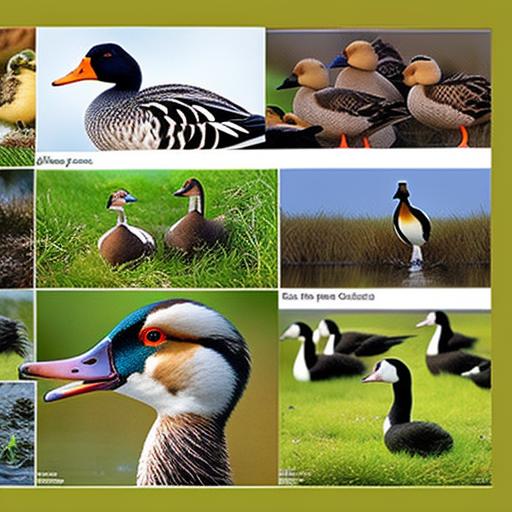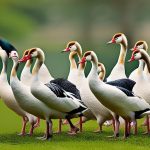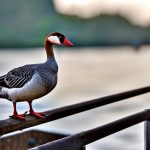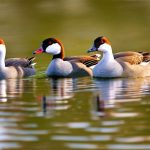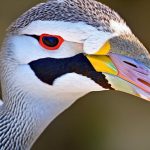Rare duck and geese breeds are a unique and fascinating addition to any farm or homestead. These breeds are often overlooked in favor of more common poultry, but they offer a variety of benefits and can be a rewarding addition to any flock. Rare duck and geese breeds come in a wide range of sizes, colors, and temperaments, making them a versatile choice for farmers and hobbyists alike. Understanding the different breeds and their specific characteristics is essential for anyone considering adding rare ducks and geese to their flock.
One of the most important aspects of understanding rare duck and geese breeds is knowing the specific needs and requirements of each breed. Some breeds are better suited to certain climates or environments, while others may have specific dietary or housing needs. Additionally, rare duck and geese breeds often have unique behavioral traits that should be taken into consideration when choosing a breed. By taking the time to research and understand the different breeds, farmers and hobbyists can make informed decisions about which breeds will best suit their needs and environment.
Choosing the Right Breed for Your Environment
When it comes to choosing the right rare duck and geese breed for your environment, there are several factors to consider. Climate, space, and available resources all play a role in determining which breed will thrive in a particular setting. For example, some breeds are better suited to cold climates, while others may be more tolerant of heat. Additionally, some breeds require more space to roam and forage, while others can thrive in smaller enclosures. By carefully considering these factors, farmers and hobbyists can choose a breed that will be well-suited to their specific environment.
Another important consideration when choosing a rare duck or geese breed is the availability of resources such as food and water. Some breeds have specific dietary needs, while others may be more adaptable to a variety of feed options. Additionally, access to clean water is essential for all duck and geese breeds, so ensuring that a reliable water source is available is crucial. By taking the time to assess the resources available in their environment, farmers and hobbyists can make informed decisions about which rare duck or geese breed will be the best fit for their farm or homestead.
Housing and Space Requirements for Rare Duck and Geese Breeds
Housing and space requirements for rare duck and geese breeds can vary significantly depending on the breed and the specific needs of the birds. In general, ducks and geese require ample space to roam and forage, as well as access to clean water for swimming and bathing. Additionally, they require protection from predators and the elements, so a secure and weatherproof shelter is essential. When it comes to housing rare duck and geese breeds, it’s important to consider the specific needs of the breed, as well as the available space and resources on the farm or homestead.
For breeds that are more active and require more space, a larger enclosure or free-range setup may be necessary. This allows the birds to roam and forage, which can help to keep them healthy and happy. On the other hand, breeds that are more docile or less active may be content in a smaller enclosure, as long as they have access to clean water and adequate shelter. By carefully considering the specific needs and behaviors of the rare duck and geese breeds, farmers and hobbyists can create a housing setup that will meet the needs of the birds while also fitting within the available space and resources.
Feeding and Nutrition for Rare Duck and Geese Breeds
Feeding and nutrition are essential aspects of raising rare duck and geese breeds, as a well-balanced diet is crucial for the health and well-being of the birds. Ducks and geese have specific dietary needs, and it’s important to provide them with a diet that meets these needs in order to keep them healthy and productive. Additionally, access to clean water is essential for all duck and geese breeds, as they require water for drinking, bathing, and swimming. By carefully considering the specific dietary needs of the rare duck and geese breeds, farmers and hobbyists can ensure that their birds are receiving the nutrition they need to thrive.
When it comes to feeding rare duck and geese breeds, it’s important to provide a balanced diet that includes a variety of nutrients. This may include a commercial poultry feed, as well as access to forage and other natural food sources. Additionally, some breeds may have specific dietary needs, such as a higher protein requirement or a need for supplemental vitamins and minerals. By understanding the specific nutritional needs of the rare duck and geese breeds, farmers and hobbyists can provide a diet that will keep their birds healthy and productive.
Health and Veterinary Care for Rare Duck and Geese Breeds
Health and veterinary care are important aspects of raising rare duck and geese breeds, as these birds are susceptible to a variety of health issues and diseases. It’s important to provide regular care and monitoring to ensure that the birds remain healthy and free from illness. Additionally, access to veterinary care is essential for addressing any health issues that may arise. By taking a proactive approach to health and veterinary care, farmers and hobbyists can help to ensure the well-being of their rare duck and geese breeds.
One of the most important aspects of health and veterinary care for rare duck and geese breeds is disease prevention. This includes providing a clean and sanitary environment, as well as monitoring the birds for any signs of illness. Additionally, it’s important to provide a balanced diet and access to clean water, as these are essential for maintaining the overall health of the birds. Regular check-ups with a veterinarian can also help to identify and address any health issues before they become more serious. By taking a proactive approach to health and veterinary care, farmers and hobbyists can help to ensure that their rare duck and geese breeds remain healthy and productive.
Breeding and Reproduction of Rare Duck and Geese Breeds
Breeding and reproduction are important aspects of raising rare duck and geese breeds, as they allow farmers and hobbyists to maintain and expand their flocks. Understanding the breeding and reproductive behaviors of the different breeds is essential for anyone considering breeding rare ducks and geese. Additionally, providing a suitable environment and proper care for breeding birds is crucial for successful reproduction. By taking the time to understand the breeding and reproductive needs of the rare duck and geese breeds, farmers and hobbyists can ensure that their flocks remain healthy and productive.
When it comes to breeding rare duck and geese breeds, it’s important to provide a suitable environment that meets the specific needs of the breeding birds. This may include providing nesting boxes or areas for the birds to lay their eggs, as well as ensuring that the birds have access to clean water and a balanced diet. Additionally, it’s important to monitor the breeding birds for any signs of illness or reproductive issues, as these can impact the success of the breeding program. By providing a suitable environment and proper care for breeding birds, farmers and hobbyists can help to ensure successful reproduction and the continued growth of their flocks.
Handling and Socialization of Rare Duck and Geese Breeds
Handling and socialization are important aspects of raising rare duck and geese breeds, as they can impact the behavior and temperament of the birds. By providing regular handling and socialization, farmers and hobbyists can help to ensure that their birds are comfortable and well-adjusted. Additionally, socialization can help to reduce stress and aggression in the birds, making them easier to manage and work with. By taking the time to handle and socialize their rare duck and geese breeds, farmers and hobbyists can help to ensure that their birds are well-adjusted and well-behaved.
When it comes to handling and socialization, it’s important to start early and provide regular, positive interactions with the birds. This can include gentle handling, as well as providing opportunities for the birds to interact with humans and other birds. Additionally, providing a stimulating environment with plenty of space to roam and forage can help to keep the birds active and engaged. By providing regular handling and socialization, farmers and hobbyists can help to ensure that their rare duck and geese breeds are well-adjusted and comfortable in their environment.
Training and Behavior Management for Rare Duck and Geese Breeds
Training and behavior management are important aspects of raising rare duck and geese breeds, as they can help to ensure that the birds are well-behaved and easy to manage. By providing regular training and positive reinforcement, farmers and hobbyists can help to shape the behavior of their birds and encourage desirable traits. Additionally, providing a stimulating environment with plenty of space to roam and forage can help to keep the birds active and engaged. By taking the time to train and manage the behavior of their rare duck and geese breeds, farmers and hobbyists can help to ensure that their birds are well-behaved and easy to work with.
When it comes to training and behavior management, it’s important to start early and provide regular, positive interactions with the birds. This can include gentle handling, as well as providing opportunities for the birds to interact with humans and other birds. Additionally, providing a stimulating environment with plenty of space to roam and forage can help to keep the birds active and engaged. By providing regular training and positive reinforcement, farmers and hobbyists can help to shape the behavior of their rare duck and geese breeds and encourage desirable traits.
Common Challenges and Solutions in Raising Rare Duck and Geese Breeds
Raising rare duck and geese breeds can present a variety of challenges, but with careful planning and management, these challenges can be overcome. One common challenge is providing a suitable environment that meets the specific needs of the birds. This may include providing ample space to roam and forage, as well as access to clean water and a balanced diet. Additionally, rare duck and geese breeds can be susceptible to a variety of health issues and diseases, so providing regular care and monitoring is essential for maintaining the health of the birds. By taking a proactive approach to addressing these challenges, farmers and hobbyists can help to ensure the well-being and productivity of their rare duck and geese breeds.
Another common challenge in raising rare duck and geese breeds is managing their behavior and temperament. Some breeds may be more aggressive or difficult to handle, while others may be more docile and easy to work with. By providing regular handling and socialization, as well as training and behavior management, farmers and hobbyists can help to shape the behavior of their birds and encourage desirable traits. Additionally, providing a stimulating environment with plenty of space to roam and forage can help to keep the birds active and engaged. By taking a proactive approach to addressing these challenges, farmers and hobbyists can help to ensure that their rare duck and geese breeds are well-adjusted and well-behaved.
Finding and Connecting with Other Rare Duck and Geese Breed Enthusiasts
Finding and connecting with other rare duck and geese breed enthusiasts can be a valuable resource for farmers and hobbyists. By networking with other enthusiasts, farmers and hobbyists can share knowledge and experiences, as well as learn about new breeds and breeding techniques. Additionally, connecting with other enthusiasts can provide access to rare breeds and breeding stock, as well as opportunities to buy, sell, and trade birds. By taking the time to find and connect with other rare duck and geese breed enthusiasts, farmers and hobbyists can expand their knowledge and resources, as well as build a supportive community of like-minded individuals.
One way to connect with other rare duck and geese breed enthusiasts is through online forums and social media groups. These platforms provide a space for enthusiasts to share information, ask questions, and connect with others who share their passion for rare breeds. Additionally, attending poultry shows and exhibitions can provide opportunities to meet other enthusiasts and learn about new breeds and breeding techniques. By taking the time to find and connect with other rare duck and geese breed enthusiasts, farmers and hobbyists can expand their knowledge and resources, as well as build a supportive community of like-minded individuals.
Meet Walter, the feathered-friend fanatic of Florida! Nestled in the sunshine state, Walter struts through life with his feathered companions, clucking his way to happiness. With a coop that’s fancier than a five-star hotel, he’s the Don Juan of the chicken world. When he’s not teaching his hens to do the cha-cha, you’ll find him in a heated debate with his prized rooster, Sir Clucks-a-Lot. Walter’s poultry passion is no yolk; he’s the sunny-side-up guy you never knew you needed in your flock of friends!

